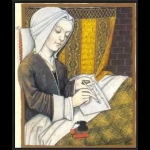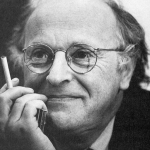Museum of the Diaspora, Tel Aviv
The roasting alive of rabbis
in the ardor of the Crusades
went unremarked in Europe from
the Holy Roman Empire to 1918,
open without prerequisite
when I was an undergraduate.
While reciting the Sh’ma in full
expectation that their souls
would waft up to the bosom
of the Almighty the rabbis burned,
pious past the humming extremes
of pain. And their loved ones with them.
Whole communities tortured and set aflame
in Christ’s name
while chanting Hear, O Israel.
Why?
Why couldn’t the rabbis recant,
kiss the Cross, pretend?
Is god so simple that He can’t
sort out real from sham?
Did He want
these fanatic autos-da-fé, admire
the eyeballs popping,
the corpses shrinking in the fire?
We live in an orderly
universe of discoverable laws,
writes an intelligent alumna
in Harvard Magazine.
Bliss is belief,
agnostics always say
a little condescendingly
as befits mandarins who function
on a higher moral plane.
Consider our contemporary
Muslim kamikazes
hurling their explosives-
packed trucks through barriers.
Isn’t it all the same?
They too die cherishing the fond
certitude of a better life beyond.
We walk away from twenty-two
graphic centuries of kill-the-jew
and hail, of all things, a Mercedes
taxi. The driver is Yemeni,
loves rock music and hangs
each son’s picture—three so far—
on tassels from his rearview mirror.
I do not tell him that in Yemen
Jewish men, like women, were forbidden
to ride their donkeys astride,
having just seen this humiliation
illustrated on the Museum screen.
When his parents came
to the Promised Land, they entered
the belly of an enormous
silver bird, not knowing whether
they would live or die.
No matter. As it was written,
the Messiah had drawn nigh.
I do not ask, who tied
the leaping ram inside the thicket?
Who polished, then blighted the apple?
Who loosed pigs in the Temple,
set tribe against tribe
and nailed man in His pocket?
But ask myself, what would
I die for and reciting what?
Not for Yahweh, Allah, Christ,
those patriarchal fists
in the face. But would
I die to save a child?
Rescue my lover? Would
I run into the fiery barn
to release animals,
singed and panicked, from their stalls?
Bliss is belief, but where’s
the higher moral plane I roost on?
This narrow plank given to splinters.
No answers. Only questions.


















Comment form: